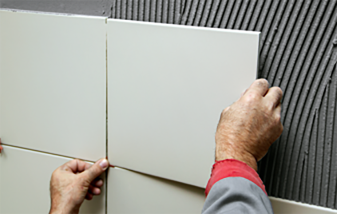
Sep . 28, 2024 00:13 Back to list
Optimizing HPMC Use in Gypsum Applications for Enhanced Performance and Efficiency
Understanding HPMC for Gypsum Applications
Hydroxypropyl Methylcellulose (HPMC) is a versatile cellulose ether derived from natural cellulose. Due to its unique physicochemical properties, such as water solubility, film-forming ability, and thickening effects, HPMC has found widespread applications across various industries, including the construction sector. In particular, HPMC plays a significant role in gypsum products, enhancing their performance characteristics and usability.
What is HPMC?
HPMC is a semi-synthetic polymer that combines properties of both hydrophilic and hydrophobic substances. It is created by modifying cellulose, a natural polymer, with hydroxypropyl and methyl groups. This modification results in a product that is soluble in cold water, making it particularly valuable in formulations where water solubility is critical. The primary features of HPMC include its ability to control viscosity, stabilize suspensions, and form films, which makes it an essential component in various applications.
Role of HPMC in Gypsum Products
Gypsum, primarily composed of calcium sulfate dihydrate, is widely used in construction for applications like drywall, plaster, and cement. However, the performance of gypsum products can be significantly enhanced through the addition of HPMC. Here are some key benefits of incorporating HPMC into gypsum formulations
1. Improved Workability HPMC enhances the workability of gypsum plasters and joint compounds. It allows for smoother application, reducing the effort required for spreading and leveling. This property is particularly beneficial on vertical surfaces or overhead applications, where ease of manipulation is crucial.
2. Water Retention One of HPMC's notable characteristics is its ability to retain water. This attribute helps prevent premature drying of gypsum mixtures, ensuring better bonding and setting times. Adequate water retention leads to improved hydration of gypsum, promoting better strength development in the cured product.
3. Extended Open Time The open time, or the time during which a mixture remains workable before setting, is vital for application efficiency. HPMC extends the open time of gypsum products, allowing contractors sufficient time to apply and finish the product without rushing, thus enhancing the overall quality of the work.
hpmc for gypsum

4. Enhanced Adhesion HPMC contributes to improved adhesion of gypsum products to various substrates. This is particularly important for applications where gypsum is applied over less-than-ideal surfaces. Enhanced adhesion helps reduce the likelihood of cracks and delamination during and after application.
5. Thixotropic Properties HPMC imparts thixotropic behavior to gypsum products, meaning that the material becomes more fluid when agitated and returns to a thicker consistency when at rest. This characteristic allows for easier application while minimizing sagging on vertical surfaces.
6. Eco-Friendly and Safe HPMC is generally regarded as safe for use in building materials and is environmentally friendly. Its use aligns with the growing trend towards sustainable and eco-sensitive construction practices.
Applications of HPMC in Gypsum Products
The utilization of HPMC in gypsum formulations spans several applications, including
- Joint Compounds HPMC enhances joint compounds for drywall installations, allowing for smoother application and better finishing quality. - Skim Coats In skim coats, HPMC improves viscosity and workability, making it easier to achieve a flat surface. - Tile Adhesives When used in tile adhesives containing gypsum, HPMC provides improved adhesion and flexibility, ensuring a durable bond between tiles and substrates.
Conclusion
The incorporation of HPMC in gypsum formulations underscores the importance of polymer additives in modern construction materials. With its ability to improve workability, water retention, open time, and overall performance, HPMC has become an essential ingredient in the production of high-quality gypsum products. As the construction industry continues to evolve, the demand for materials that enhance efficiency, sustainability, and performance will further solidify HPMC's role in gypsum applications. By understanding the benefits and applications of HPMC, manufacturers and contractors can optimize their gypsum products, leading to better construction practices and improved outcomes in various projects.
-
Versatile Hpmc Uses in Different Industries
NewsJun.19,2025
-
Redispersible Powder's Role in Enhancing Durability of Construction Products
NewsJun.19,2025
-
Hydroxyethyl Cellulose Applications Driving Green Industrial Processes
NewsJun.19,2025
-
Exploring Different Redispersible Polymer Powder
NewsJun.19,2025
-
Choosing the Right Mortar Bonding Agent
NewsJun.19,2025
-
Applications and Significance of China Hpmc in Modern Industries
NewsJun.19,2025







